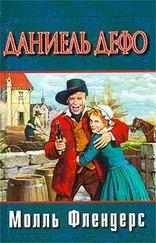Даниэль Дефо - History of the Plague in London
Здесь есть возможность читать онлайн «Даниэль Дефо - History of the Plague in London» весь текст электронной книги совершенно бесплатно (целиком полную версию без сокращений). В некоторых случаях можно слушать аудио, скачать через торрент в формате fb2 и присутствует краткое содержание. Год выпуска: 2014, Издательство: epubBooks Classics, Жанр: Историческая проза, на английском языке. Описание произведения, (предисловие) а так же отзывы посетителей доступны на портале библиотеки ЛибКат.
- Название:History of the Plague in London
- Автор:
- Издательство:epubBooks Classics
- Жанр:
- Год:2014
- ISBN:нет данных
- Рейтинг книги:4 / 5. Голосов: 1
-
Избранное:Добавить в избранное
- Отзывы:
-
Ваша оценка:
- 80
- 1
- 2
- 3
- 4
- 5
History of the Plague in London: краткое содержание, описание и аннотация
Предлагаем к чтению аннотацию, описание, краткое содержание или предисловие (зависит от того, что написал сам автор книги «History of the Plague in London»). Если вы не нашли необходимую информацию о книге — напишите в комментариях, мы постараемся отыскать её.
History of the Plague in London — читать онлайн бесплатно полную книгу (весь текст) целиком
Ниже представлен текст книги, разбитый по страницам. Система сохранения места последней прочитанной страницы, позволяет с удобством читать онлайн бесплатно книгу «History of the Plague in London», без необходимости каждый раз заново искать на чём Вы остановились. Поставьте закладку, и сможете в любой момент перейти на страницу, на которой закончили чтение.
Интервал:
Закладка:
After this, the parish officers came up to them, and parleyed with them at a distance, and desired to know who they were, and by what authority they pretended to fix their stand at that place. John answered very frankly, they were poor distressed people from London, who, foreseeing the misery they should be reduced to if the plague spread into the city, had fled out in time for their lives, and, having no acquaintance or relations to fly to, had first taken up at Islington, but, the plague being come into that town, were fled farther; and, as they supposed that the people of Epping might have refused them coming into their town, they had pitched their tents thus in the open field and in the forest, being willing to bear all the hardships of such a disconsolate lodging rather than have any one think, or be afraid, that they should receive injury by them.
At first the Epping people talked roughly to them, and told them they must remove; that this was no place for them; and that they pretended to be sound and well, but that they might be infected with the plague, for aught they knew, and might infect the whole country, and they could not suffer them there.
John argued very calmly with them a great while, and told them that London was the place by which they, that is, the townsmen of Epping, and all the country round them, subsisted; to whom they sold the produce of their lands, and out of whom they made the rents of their farms; and to be so cruel to the inhabitants of London, or to any of those by whom they gained so much, was very hard; and they would be loath to have it remembered hereafter, and have it told, how barbarous, how inhospitable, and how unkind they were to the people of London when they fled from the face of the most terrible enemy in the world; that it would be enough to make the name of an Epping man hateful throughout all the city, and to have the rabble stone them in the very streets whenever they came so much as to market; that they were not yet secure from being visited themselves, and that, as he heard, Waltham was already; that they would think it very hard, that, when any of them fled for fear before they were touched, they should be denied the liberty of lying so much as in the open fields.
The Epping men told them again that they, indeed, said they were sound, and free from the infection, but that they had no assurance of it; and that it was reported that there had been a great rabble of people at Walthamstow, who made such pretenses of being sound as they did, but that they threatened to plunder the town, and force their way, whether the parish officers would or no; that there were near two hundred of them, and had arms and tents like Low Country soldiers; that they extorted provisions from the town by threatening them with living upon them at free quarter, [202] Entertainment. In this sense, the plural, "quarters," is the commoner form.
showing their arms, and talking in the language of soldiers; and that several of them having gone away towards Rumford and Brentwood, the country had been infected by them, and the plague spread into both those large towns, so that the people durst not go to market there, as usual; that it was very likely they were some of that party, and, if so, they deserved to be sent to the county jail, and be secured till they had made satisfaction for the damage they had done, and for the terror and fright they had put the country into.
John answered, that what other people had done was nothing to them; that they assured them they were all of one company; that they had never been more in number than they saw them at that time (which, by the way, was very true); that they came out in two separate companies, but joined by the way, their cases being the same; that they were ready to give what account of themselves anybody desired of them, and to give in their names and places of abode, that so they might be called to an account for any disorder that they might be guilty of; that the townsmen might see they were content to live hardly, and only desired a little room to breathe in on the forest, where it was wholesome (for where it was not, they could not stay, and would decamp if they found it otherwise there).
"But," said the townsmen, "we have a great charge of poor upon our hands already, and we must take care not to increase it. We suppose you can give us no security against your being chargeable to our parish and to the inhabitants, any more than you can of being dangerous to us as to the infection."
"Why, look you," says John, "as to being chargeable to you, we hope we shall not. If you will relieve us with provisions for our present necessity, we will be very thankful. As we all lived without charity when we were at home, so we will oblige ourselves fully to repay you, if God please to bring us back to our own families and houses in safety, and to restore health to the people of London.
"As to our dying here, we assure you, if any of us die, we that survive will bury them, and put you to no expense, except it should be that we should all die, and then, indeed, the last man, not being able to bury himself, would put you to that single expense; which I am persuaded," says John, "he would leave enough behind him to pay you for the expense of.
"On the other hand," says John, "if you will shut up all bowels of compassion, and not relieve us at all, we shall not extort anything by violence, or steal from any one; but when that little we have is spent, if we perish for want, God's will be done!"
John wrought so upon the townsmen by talking thus rationally and smoothly to them, that they went away; and though they did not give any consent to their staying there, yet they did not molest them, and the poor people continued there three or four days longer without any disturbance. In this time they had got some remote acquaintance with a victualing house on the outskirts of the town, to whom they called at a distance to bring some little things that they wanted, and which they caused to be set down at some distance, and always paid for very honestly.
During this time the younger people of the town came frequently pretty near them, and would stand and look at them, and would sometimes talk with them at some space between; and particularly it was observed that the first sabbath day the poor people kept retired, worshiped God together, and were heard to sing psalms.
These things, and a quiet, inoffensive behavior, began to get them the good opinion of the country, and the people began to pity them and speak very well of them; the consequence of which was, that upon the occasion of a very wet, rainy night, a certain gentleman who lived in the neighborhood sent them a little cart with twelve trusses or bundles of straw, as well for them to lodge upon as to cover and thatch their huts, and to keep them dry. The minister of a parish not far off, not knowing of the other, sent them also about two bushels of wheat and half a bushel of white pease.
They were very thankful, to be sure, for this relief, and particularly the straw was a very great comfort to them; for though the ingenious carpenter had made them frames to lie in, like troughs, and filled them with leaves of trees and such things as they could get, and had cut all their tent cloth out to make coverlids, yet they lay damp and hard and unwholesome till this straw came, which was to them like feather beds, and, as John said, more welcome than feather beds would have been at another time.
This gentleman and the minister having thus begun, and given an example of charity to these wanderers, others quickly followed; and they received every day some benevolence or other from the people, but chiefly from the gentlemen who dwelt in the country round about. Some sent them chairs, stools, tables, and such household things as they gave notice they wanted. Some sent them blankets, rugs, and coverlids; some, earthenware; and some, kitchen ware for ordering [203] Preparing.
their food.
Интервал:
Закладка:
Похожие книги на «History of the Plague in London»
Представляем Вашему вниманию похожие книги на «History of the Plague in London» списком для выбора. Мы отобрали схожую по названию и смыслу литературу в надежде предоставить читателям больше вариантов отыскать новые, интересные, ещё непрочитанные произведения.
Обсуждение, отзывы о книге «History of the Plague in London» и просто собственные мнения читателей. Оставьте ваши комментарии, напишите, что Вы думаете о произведении, его смысле или главных героях. Укажите что конкретно понравилось, а что нет, и почему Вы так считаете.












